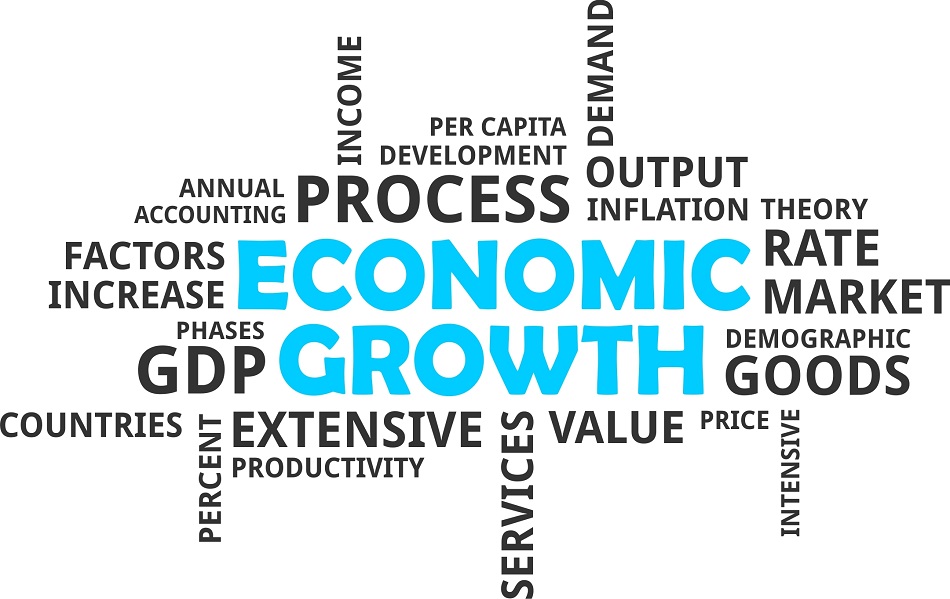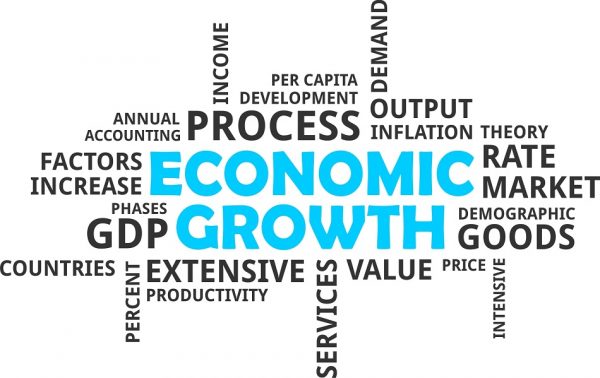On Tuesday, September 5, the National Bureau of Statistics (NBS) released its Gross Domestic Product (GDP) Report. The document, which is the latest installment of the NBS’s roundups of the state of the economy, is significant for one thing- it announces, in no uncertain terms, that Nigeria has finally emerged from its recession.
But that’s not the whole story.
While experts have pored over the figures in the report, Government officials have expressed “cautious optimism” that the days of national leanness are coming to an end. A look at the details of the report (which can be downloaded from the NBS’s website) helps us understand why the official reaction hasn’t been as rapturous as we would ordinarily expect. The Gross Domestic Product (that is, economic output the country has produced within a year) rose by 0.55 percent- a sluggish step forward by all accounts. Throw into the mix the fact that many (maybe most) Nigerians haven’t seen their financial lot improve in the three months that the report is supposed to cover, and you’ll see that “caution” is probably the best position for public officials to adopt at the moment. However, they are hopeful- as we all are – that the dark times will soon be behind us.
What all the fuss is about
If the figures presented to us by the NBS are correct (there’s no reason to believe they aren’t), then there could be better days ahead for Nigerians who have had to adopt frugal lifestyles in order to survive harsh economic conditions. Since the country slid into recession in the second quarter of 2016, hundreds of thousands have lost their jobs, numerous businesses have shut down, and millions have descended deep into poverty. News of what might be the beginning of an economic revival is certainly welcome at this point.
What the figures actually say
What, then, has reversed the negative growth trend?
On closer examination, the NBS’s report shows that there has been a change in a few sectors of the economy. The oil sector, which has suffered severe decline for a long while, is growing again. It was hit hard by a sharp drop in oil prices at the international markets, and it was this fall that ultimately plunged Nigeria’s economy into recession. The sector recorded a growth of 1.64 percent year-on-year (i.e. compared to the same period last year) between the months of April and June 2017. The rebound was due to an improvement in earnings from the sector.
Agriculture also grew, posting an increase in output of about 3.01 percent (year-on-year). The sector has in fact grown throughout the period of the recession; things might have been worse if Agricultural production had been affected in the same way other sectors have. Finance and insurance, mining and manufacturing also recorded varying degrees of growth.
However, many parts of the economy are still struggling. For example, information and communication contracted by -1.15 percent, while transportation shrank by -6.18 percent. Other sectors still witnessing declining productivity include trade, arts and entertainment, education, health and social services, and real estate.
In summary, the picture painted by the report is quite mixed. Some sectors are coming back to life; many others are still reeling from the recession’s shock waves.
What the future holds
Nigerians now expect to see manifestations of this recovery unfold around them. But there is still the danger that the country could fall back into recession- what experts refer to as a “Double-Dip recession”. This has happened before with other countries, as it did with the United States in 1981.
The hope of policy makers and the general public is that current efforts to get the nation’s economic engines running again prove successful, and that the painful era of mass layoffs and collapsing businesses is gone for good.


